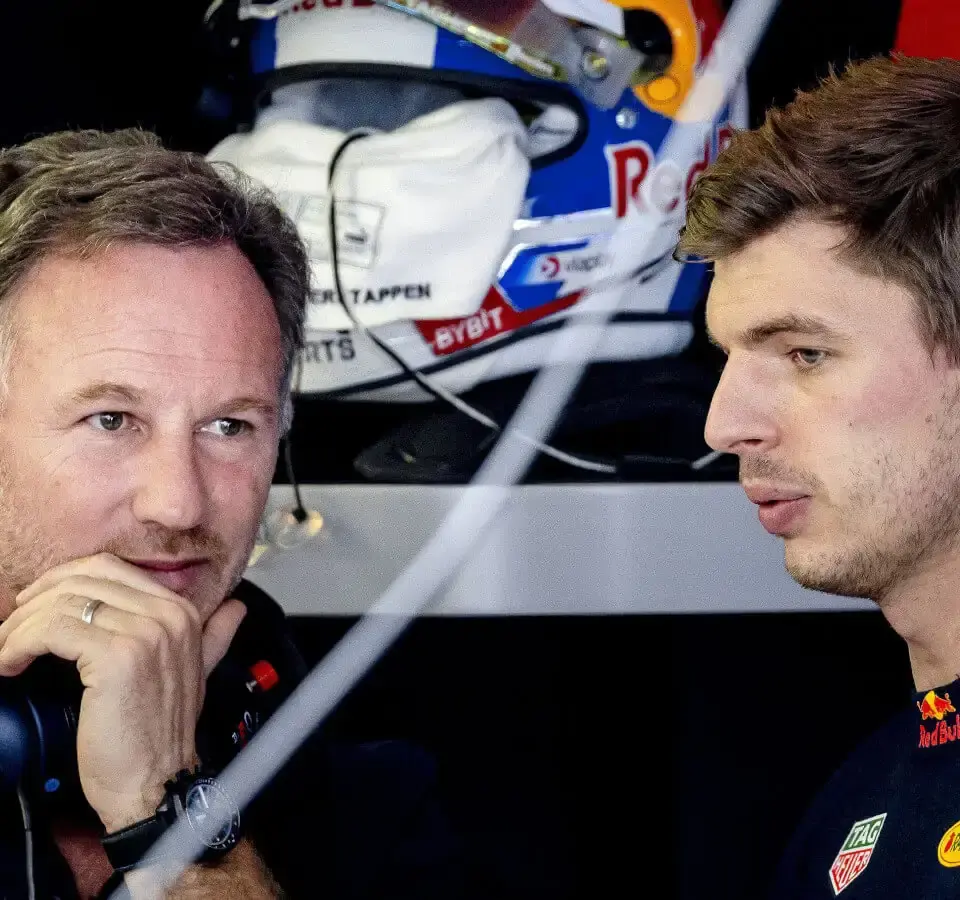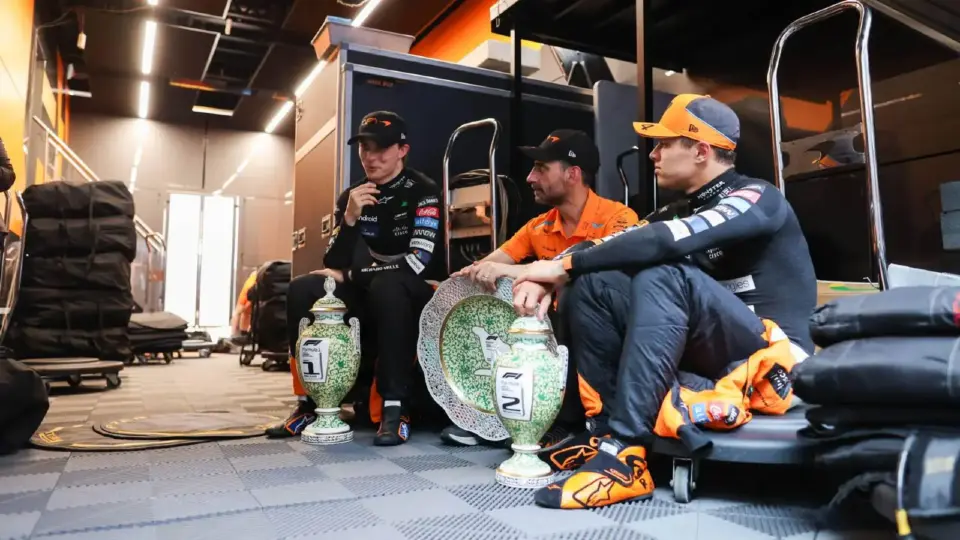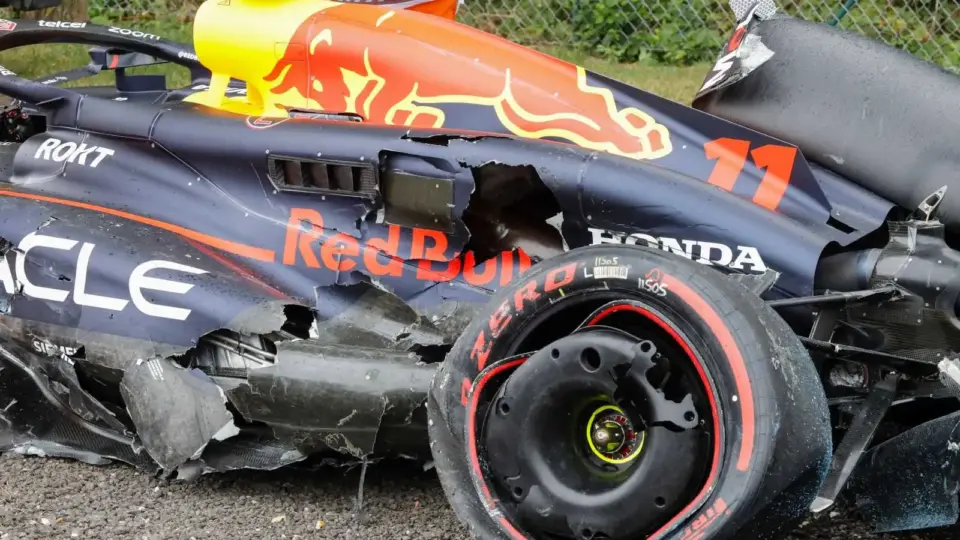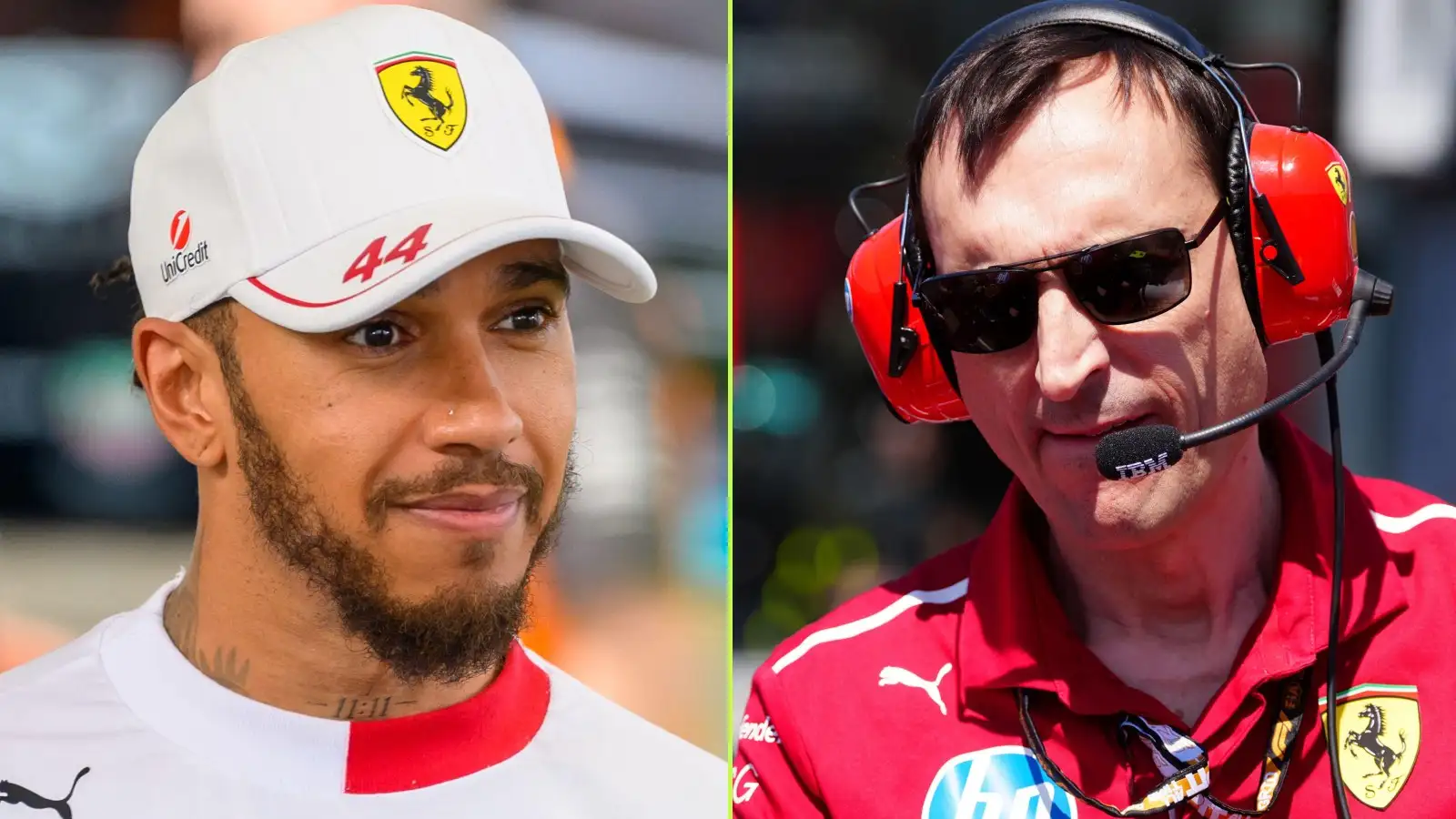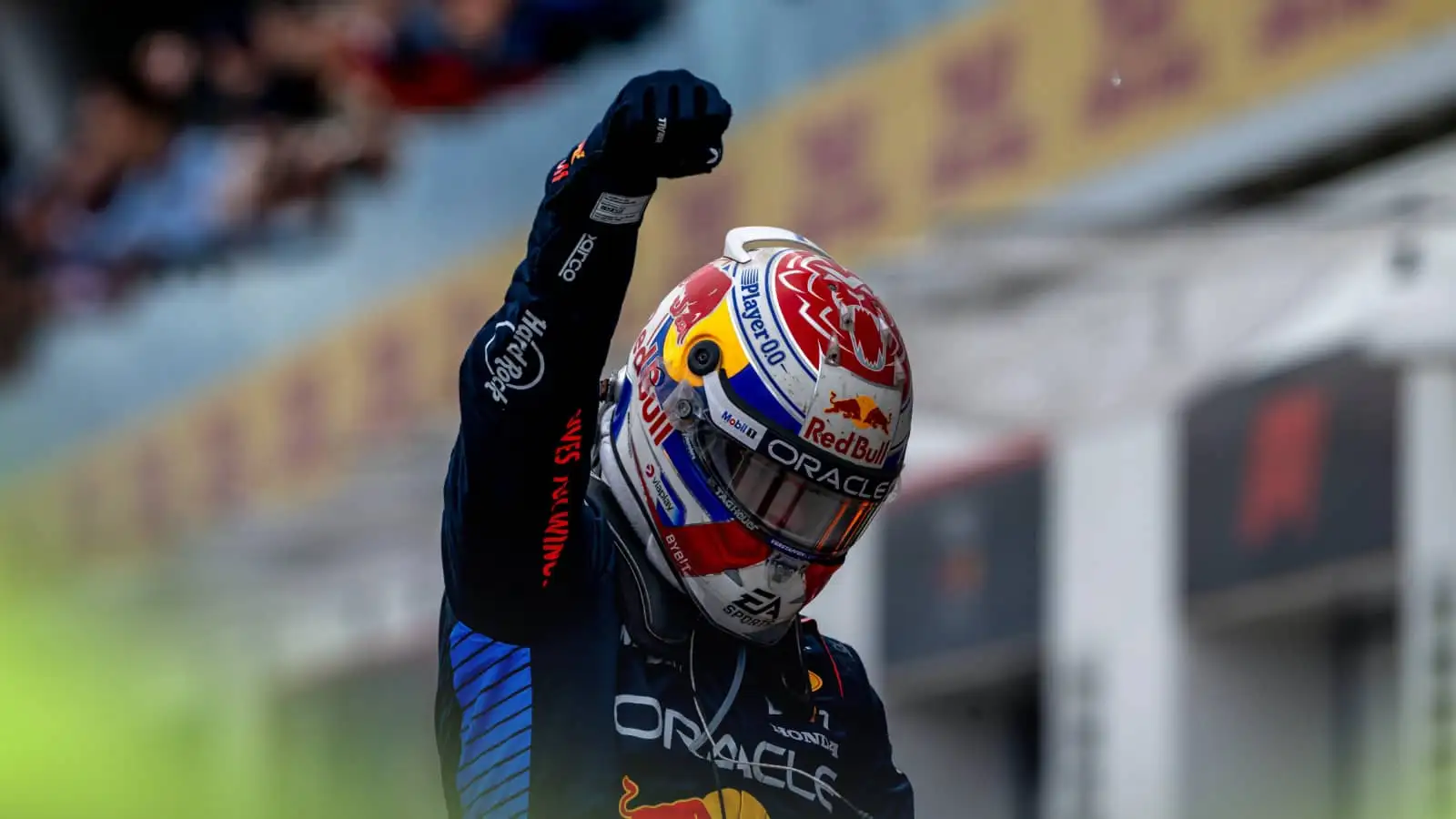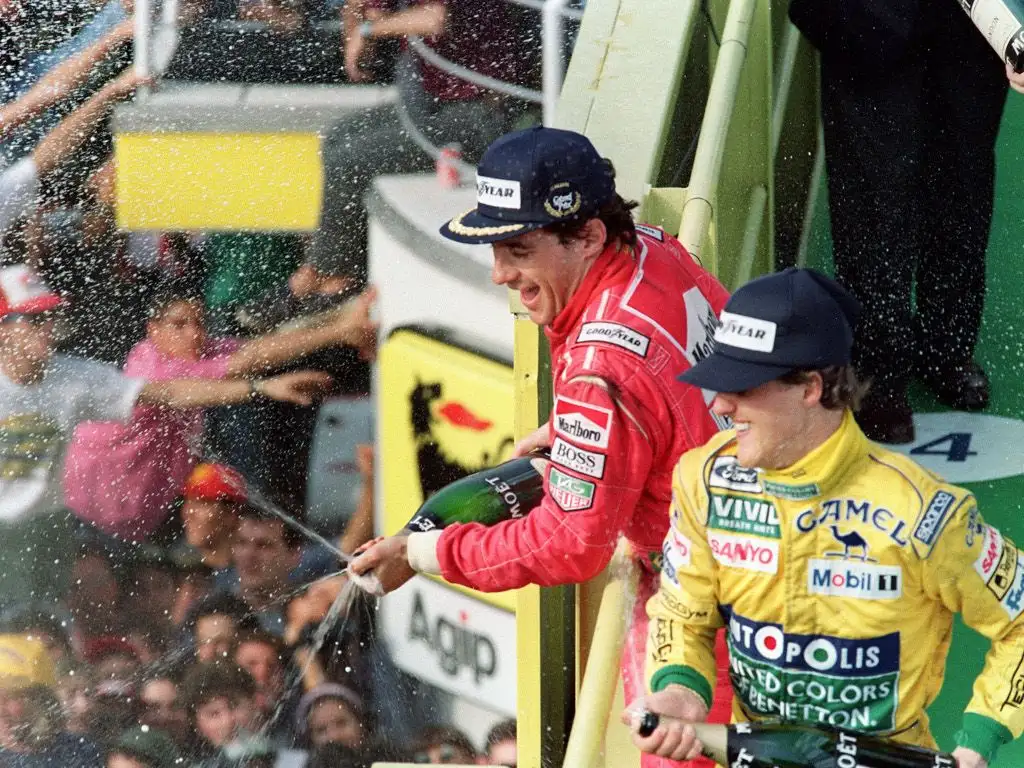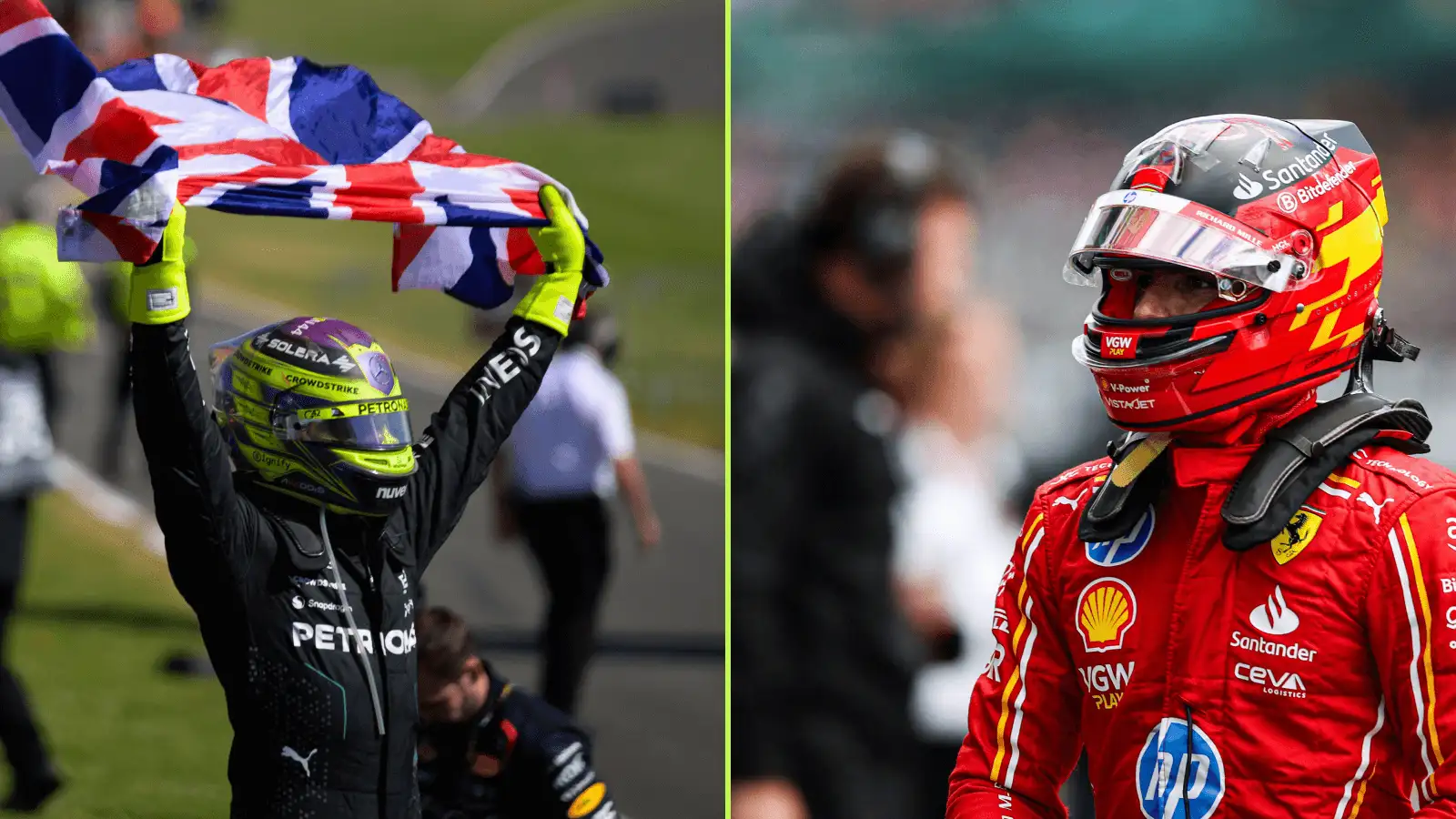When you’re the reigning world champion, expectations are high, and every decision is scrutinized—even those made at 3 in the morning. Max Verstappen, known for pushing limits, found himself at the center of attention again. This time, it wasn’t just his on-track performance but his off-hours activities that got tongues wagging.
Max Verstappen, committed as ever, participated in a sim race during the Hungarian GP weekend. It was a move that some saw as questionable, considering the demanding nature of the main event. Yet, Max is no stranger to juggling responsibilities. After all, dedication comes in many forms, right? But how did Red Bull boss Christian Horner react?
The Midnight Challenge
Verstappen’s participation in the 24 Hours of Spa didn’t go unnoticed. While most of his peers tucked in for the night, Max was busy sim racing, ending his session only at 3am. This unconventional choice raised eyebrows, especially from media personalities like Sky F1’s David Croft, who didn’t shy away from mentioning it during race coverage.
It’s not every day you hear of a racing champion opting for such late-night challenges. Verstappen’s passion for racing knows no bounds, it seems, even if it means burning the midnight oil. But not everyone was impressed. Some questioned his judgment, considering the stakes on the actual Formula 1 circuit the next day.
Max’s decision to partake in the sim race came after a teammate couldn’t drive. Stepping in, he took on two stints, showcasing his unmatched commitment. It was a choice that led to a tough race in Hungary, punctuated by heated exchanges with his race engineer. Max’s fifth-place finish sparked debate—was sim racing to blame?
Horner’s Perspective
Christian Horner, Red Bull’s team principal, stood by his driver. ‘He knows exactly what’s required in a grand prix and we trust his judgment,’ Horner said, exuding confidence in Verstappen’s decision-making. Yet, when pressed on whether this meant Max had free rein, Horner hinted that conclusions might be drawn too hastily.
Horner’s approach seems to be one of understanding and trust. Verstappen’s track record, after all, speaks volumes. The champion is expected to make smart choices, and Horner believes Max knows what it takes to excel in Formula 1.
Horner sees the late-night escapade as part of the broader picture. It’s a testament to Max’s dedication, but one that also calls for a balance between passions and professional commitments. Inside Red Bull, discussions aren’t for public ears, emphasizing teamwork and internal resolution.
The incident has also highlighted an important aspect: the thin margin between dedication and overcommitment. Horner acknowledges this and addresses it as a natural challenge in their quest for excellence.
The Aftermath and Regulations
As events unfolded, Helmut Marko, Red Bull motorsport advisor, had a say too. They agreed that late-night sim racing won’t recur. Marko disclosed plans to ensure Max won’t partake in nocturnal activities before a race, implicitly setting new guidelines without hampering his motivation.
The Hungarian GP weekend was a learning curve both for Max and Red Bull. As it often happens in sports, policies evolve alongside experiences, solidifying Red Bull’s approach to handling its champions. Verstappen’s third off-podium finish made it clear—competitive dynamics are shifting.
With rivals narrowing in, Red Bull’s realization was already anticipated. Horner noted that in stable regulation periods, performance gains become incremental. This was neither unforeseen nor unmanageable. They’re prepared to push harder, all eyes on retaining their crown.
A Champion’s Commitment
Verstappen’s path is undeniably focused. His ardor for the sport stretches beyond traditional limits, like his late-night sim races. While questions surfaced about the timing of his choices, his dedication to refining skills is unquestionable.
Following the incident, Verstappen expressed himself candidly, dismissing the criticisms with strong words. For him, the drive to win and be the best remains unyielded, reinforcing his stature as a formidable competitor.
Much like any other professional, Verstappen balances the scale of passion and responsibility. His actions, though sometimes misunderstood, are tailored towards achieving unparalleled prowess on the track.
His career, molded by dedication, is augmented by his unique approach to preparation. Sim racing, as part of his regimen, echoes this sentiment clearly, albeit requiring timely adjustments.
Red Bull’s Structural Dynamics
The Hungarian GP and its preceding events prompted Red Bull to reassess strategies. In dynamics that merge individual brilliance with team objectives, the incident spotlighted internal communication’s significance.
Red Bull’s ethos revolves around strength, both in their machines and teamwork. Verstappen’s experiences contribute to this narrative. Adjustments to their methods aren’t abrupt but part of a continuous fine-tuning process.
Such incidents serve as a reminder of coordination within the team. Horner’s trust in Verstappen underscores the belief in collective growth rather than individual missteps. The team strives forward, stronger together.
These developments, woven into Red Bull’s strategy, help amplify their competitive edge. Verstappen and the team’s collaborative spirit stand as testaments to their pursuit of greatness.
Racing Community Reactions
Reactions from the racing community have been mixed, with some lauding Verstappen’s dedication, while others see the timing as questionable. It’s a debate between respecting personal choice and emphasizing team focus.
David Croft’s remarks drew criticism, but also opened the floor for conversation. Inside F1 circles, discussions on balance between personal and professional life are ever more relevant.
While the community grapples with these nuances, Red Bull’s approach remains steady. The focus is unwavering—drive to succeed, no matter the challenges.
Ultimately, the larger narrative remains: as F1 advancements blur the lines between virtual and real, choices will be questioned, dissected, and learned from.
Future Implications for Verstappen and Red Bull
An optimistic outlook beds down in both Verstappen and Red Bull’s mindset. It’s not just about individual races but carving out a legacy marked by innovation and resilience.
Lessons from the past fuel their journey forward. As the calendar pages turn, Max and Red Bull gear up for more victorious ventures.
Navigating Challenges Ahead
The Hungarian GP provided insights, serving as a reminder of Formula 1’s unpredictability. Both team and driver are poised for forthcoming tests, ready to face whatever the season unfolds.
Max’s robust personality, combined with an ambitious outlook, cements his place as a veteran in the making. With a keen eye on perfecting his strategy, he marches towards maintaining dominance.
Meanwhile, Red Bull’s strategic acumen ensures that every challenge is met resourcefully, building on experience to remain a powerhouse in the F1 circuit.
While the racing world watches intently, Horner and Verstappen focus on what lies ahead. Their combined efforts echo a future that promises strong performances and strategic triumphs.
Max Verstappen’s late-night decisions, though contentious, underscore his passion for racing. Red Bull trusts in their champion’s judgment, emphasizing teamwork.
As the season progresses, both Verstappen and Red Bull remain laser-focused on maintaining their success, riding on lessons learned and aiming for the top.
